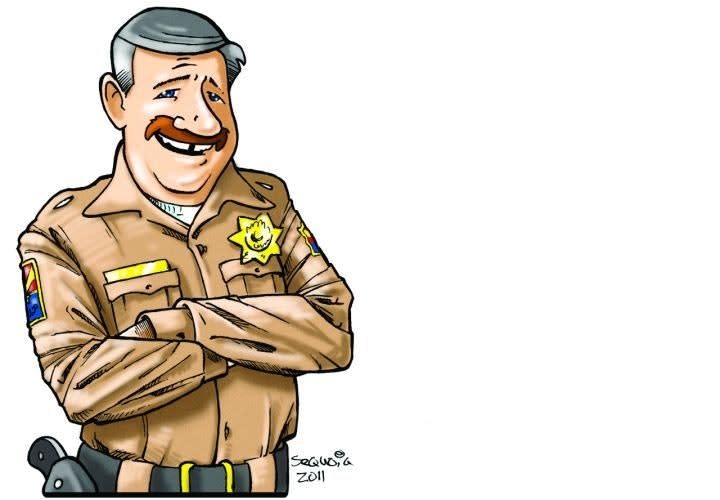I have always been fascinated by the ideas of Joseph Campbell, the mythologist made famous in the PBS series “The Power of Myth,” which first aired in 1988. His explanation of the hero’s journey was spellbinding and got me seriously exploring the idea that life is a heroic adventure that each of us starts at birth. He explained that during the birth process, mother and child endure a transition. In fact, most ancient cultures gave mothers a mythical and powerful place in the universe. For example, in the Aztec religion, with its multiple heavens, women who died in childbirth went to the same heaven as warriors who died in battle.
It seems we have lost some of the magic of the heroic, and therefore today’s society suffers a lot of the emotional crises experienced by a culture that has lost its faith and its mythologies. Campbell believed those who refused their heroic, unconscious path risk a psychic collapse, a mental breakdown. However, if you have put on a badge and a gun, I think he would say you have successfully followed the call to adventure.
After taking up the path, a hero goes through various transitions, ultimately facing the challenges to come, utilizing the mentors, training, and mental and emotional tools at his or her disposal. The academy, your field training officers, the veterans you observed, and the early challenges you faced in your career were shaping you into the hero you are today.
I know most of you will say the term “hero” is not one that you use to describe yourself, so let me make a simple observation. All humans follow a path filled with trials and tribulation, and eventually suffer decline and death; a hero is one who partakes fully in this journey. As Andrew Carnegie wrote: “We live in a heroic age. Not seldom are we thrilled by deeds of heroism where men or women are injured or lose their lives in attempting to preserve or rescue their fellows; such the heroes of civilization. The heroes of barbarism maimed or killed theirs.” You, my fellow crime-fighters, are ranked among these heroes.
So OK, you heroes, listen up. One of the keys to the heroic life is to eventually come to the dragon, or the Balrog, or Darth Vader; a tough time, a true test, a “belly of the whale” moment. The War on Cops, the social upheaval, the virus, and all the other crises we’re facing are reaching a crescendo around us, and you, Dear Peacekeeper, are caught dead in the center of the maelstrom. I understand how dark the world seems and how alone each of you feels with your fears and concerns. But this is the time we were each born for, our opportunity to persevere and do our duty and find what Campbell called our “inner bliss” in living the adventure and not listening to others. Listen to your heart. The very word “duty” implies a heroic image. The original 14th Century definition of duty is: “That which one is bound by; natural, moral or legal obligations and the force of that which is morally right.”
So many Americans I talk to today speak in wonder about how so many law enforcement officers still go out daily and risk their lives protecting their communities; they express their respect and admiration for such “heroes.” You see, your actions are speaking to their deeper emotions. They are living their lives in deep anxiety and fear of the darkness around them, and at levels they don’t even consciously understand your actions, courage, and sacrifice gives power to their lives… at least I think Campbell would say so.
So what about you, the one in the street getting yelled at? This is the time to listen to your heart, believe in yourself and your mission, ignore the quitters and doubters and critics, and keep going. Use your wisdom and knowledge and skills every day, all the time, and don’t let fatigue and doubt cloud your vision or dull your senses. You are the heroes of our civil society, our just society. Use your compassion wisely to help others, to sense when they are distressed.
And I mean you should help all others, your brothers and sisters, the innocent you protect, and especially the victims you comfort. It is doing these things in the midst of the crucible of today’s crisis that will change you within, and you will come out of the whale’s belly, or stand on the slain dragon, transformed. To paraphrase one of my favorite authors on resilience, Al Seibert, in this way you will end up, not with post traumatic stress, but with the power of post traumatic growth.
Dave Smith is an internationally recognized law enforcement trainer and is the creator of “JD Buck Savage.” You can follow Buck on Twitter at @thebucksavage.













